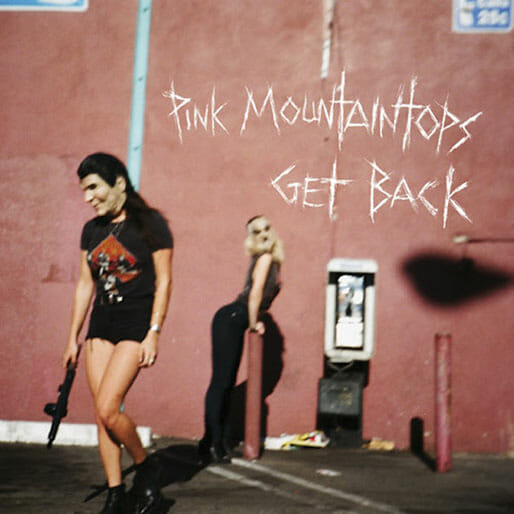Stephen McBean has never sounded comfortable within his moment in time. He received the memo that Canadian musicians in the mid-aughts had to have collectives, but his didn’t have a large mass of people, or baroque instrumentation, or feathery indie-pop harmonies. The Black Mountain Collective (yes, it actually referred to itself as a collective) was really just the members of Black Mountain, while Pink Mountaintops was really just McBean playing with, over the course of its history, virtually every other musician he has come into contact with.
Pink Mountaintops has since been labeled as McBean’s more experimental project, which isn’t exactly fair, as Pink Mountaintops is just harder to pin down than Black Mountain, with the latter much more consistent in its direction and influences (i.e. stoner rock and early heavy metal). And maybe this lack of definition caused five years to go by between albums, causing McBean to scrap multiple recording sessions for Get Back and opting to leave Canada and come to Los Angeles.
The end result is an album far different than its predecessor, but not at all hard to imagine as from the same mind, sort of like Spiritualized’s tendency to drift into Southern American rock for influences. Get Back is the work of a music fan first and foremost, a listener and an appreciator and a devotee who has taken fandom to the level of lifestyle. Now, McBean can live out his rock and roll dreams and write them as cool or sad or hazy as he wants. He can change the “summer of love” to a time he actually did experience, like 1987. Hell, he can do anything he wants.
Get Back is ultimately a liberating album, the work of a man freeing himself from his own past and following instincts and whims. On “North Hollywood Microwaves,” that results in Giant Drag’s Annie Hardy delivering a rapped verse about sex with bears. On “New Teenage Mutilation,” McBean is Tom Petty, a cup of coffee shy of a hit, the melody and sentiment all beautiful and inspiration, but arranged just a shade too ramshackle for the AM radio to put in rotation. “Through All the Worry” in turn may be the most beautifully sad melody McBean has ever crafted, hidden behind used fuzz pedals and even a low-difficulty guitar solo. It’s enjoyable for its left turns and frustrating at the same time.
McBean never fits comfortably in the past just like his music doesn’t make total sense today, but for the most part, the good crushes the awkward. Get Back is a transportive listen, one that takes the audience to inexperienced rock and roll memories, makes them as grimy as they are romantic, and then offers a ride back home. And as nice as Get Back is to visit, the vision is also just disturbing enough to ensure most won’t want to stay.
